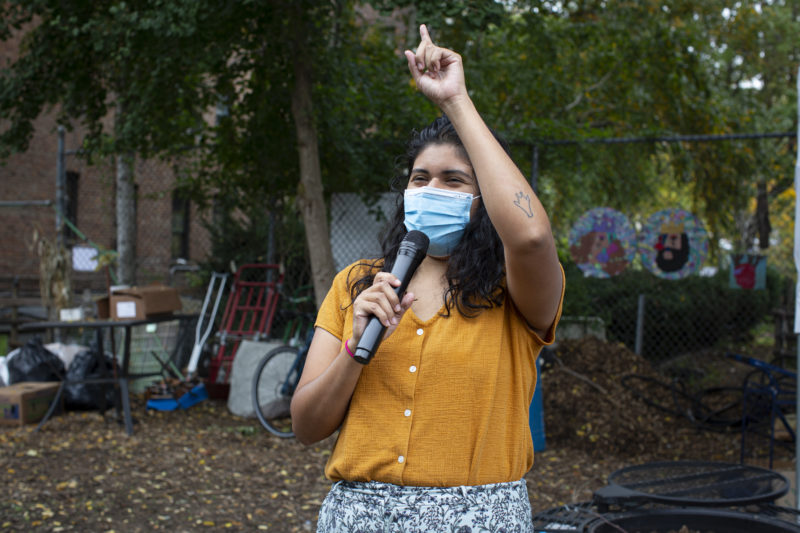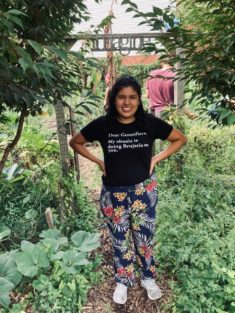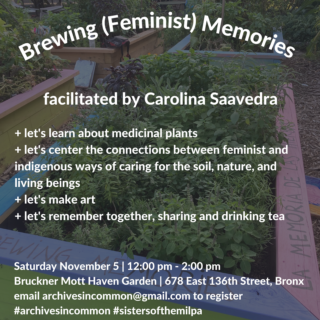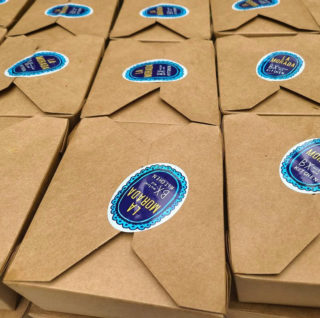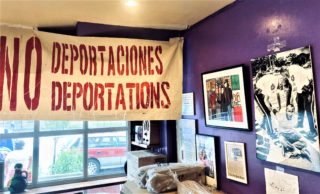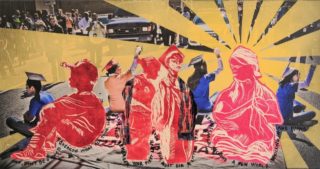The Archives in Common project is thrilled and proud to announce that Carolina Saavedra, educator and Sous Chef at La Morada restaurant, and one of Archives in Common’s lead collaborators, has been named one of NYC Time Out’s Women of the Year. In the Fall 2020, Carolina facilitated two community workshops at Brook Park, Brewing Memories, where members of the community learned about the qualities and medicinal properties of certain plants, and then used the leaves and stems of these plants to draw a memory and consume these memories in the form of tea. As Professor Ángeles Donoso Macaya describes, “the workshop brought the process of learning about plants together with the work of fostering community, in that it emphasized the importance of both learning to take care of ourselves and remembering together, in community.”
For Carolina, an educator, learning to sustain ourselves while fostering a sense of community in the process, is key. This was made manifest at the Brewing Memories workshop, and it is also present in her next project: “a grassroots food academy, which seeks to recreate mutual aid systems that are already in place while learning from them.” Besides sharing this new mutual aid project, Carolina used the platform facilitated by the NYC Time Out nomination to talk about the pressing issues in her community: vaccine accessibility for undocumented workers—"The local and federal governments should combine forces to give undocumented folks a fair chance to receive the COVID-19 vaccination”—and food waste—"Currently, there is still too much excess food going to waste, too many unused kitchens in boarded-up restaurants, too many trained kitchen workers who have been laid off while 1.5 million New Yorkers can’t pay for groceries.”
Click to read the whole piece in Time Out New York or read below:
Congratulations, Carolina!
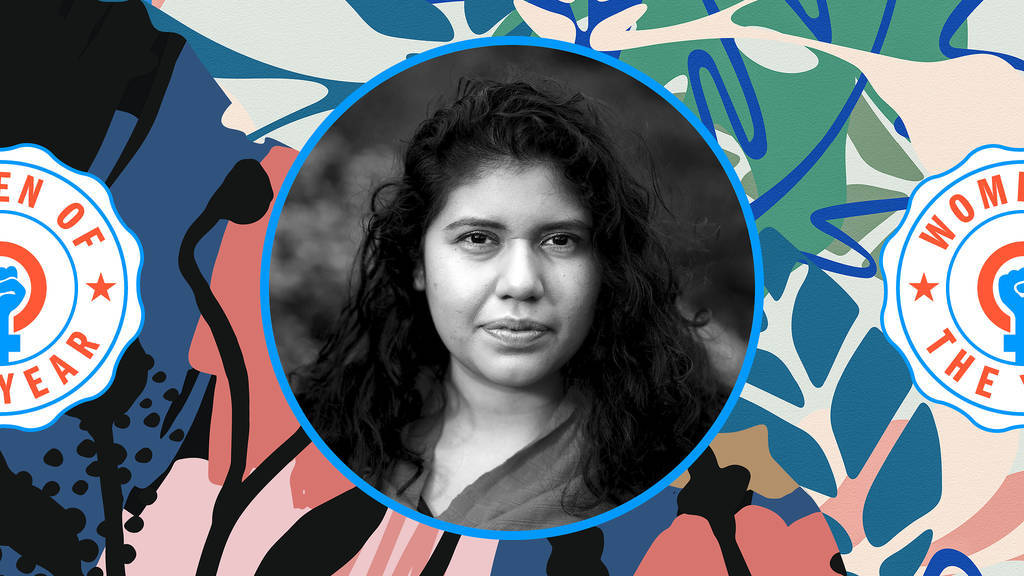
Carolina Saavedra, Sous Chef at La Morada
Carolina Saavedra is the sous chef at South Bronx restaurant La Morada, an eatery owned and operated by an undocumented family. Herself a born and raised New Yorker, daughter of undocumented parents that were displaced due to the North American Free Trade Agreement that came into force in 1994, Saavedra's culinary talents are intricately shaped by her heritage—which makes her positivity that much more striking.
“As more people focus on how COVID-19 has negatively impacted the restaurant industry I want to highlight a positive," she says. "It helps shine a light on the industry workers that tend to be overlooked like the dishwashers and how their role is just as integrated and as crucial as the one of a cook."
Her life as a single mother has also put her career, cuisine and life outlook into perspective—especially when discussing the unique challenges faced by women throughout this extraordinarily strange year. "On top of having the highest percentage of job losses, we've had to learn how to become even more malleable with life," she says. Balancing home life, work duties and, well, potty training isn't as easy as it sounds, she says. She believes that both the federal and local governments could step in to help, starting with vaccine accessibility.
"Many undocumented folks can't even schedule an appointment because of lack of Internet, phone or langugage," she explains. “In other cases, many can’t afford to make it to the distribution place or jeopardize calling out of work to go and receive it. The local and federal governments should combine forces to give undocumented folks a fair chance to receive the COVID-19 vaccination. Undocumented workers are essential workers."
Stay tuned for the chef's next project: a grassroots food academy, which seeks to recreate mutual aid systems that are already in place while learning from them. "We will connect resources to those in need to ensure that no food goes to waste," she explains. "Currently, there is still too much excess food going to waste, too many unused kitchens in boarded-up restaurants, too many trained kitchen workers who have been laid off while 1.5 million New Yorkers can’t pay for groceries."—Anna Rahmanan
Rapid-fire questions:
What is your go-to comfort meal?
Sope:
a corn cake topped with beans, seasonal veggies and cheese that's said
to be the perfect meal because it has more than three food groups on the
plate and because it showcases indigenous cuisine, preservation and
seasonality.
Where do you go to get away from it all?
Brook
Park community garden is a place I call my second home and it is where I
am currently growing medicinal herbs for the community to boost and
support their immune system.
What advice do you have for up-and-coming chefs trying to make it in New York?
Volunteer
at soup kitchens, where you'll learn so much about the huge disparities
in the food system and develop close relationships with other folks in
the industry. You'll also develop your knife skills a lot faster.
What are some of your favorite local businesses in NYC?
Street
vendors. Some of my favorites include the tamalera on 138th Street
between 3rd and Willis Avenue and the churros lady inside the 125th
Street subway station.
Get in on the action: Donate a whole range of ingredients and money to the restaurant's Mutual+Aid Kitchen project. Check out the project's GoFundMe campaign right here.
